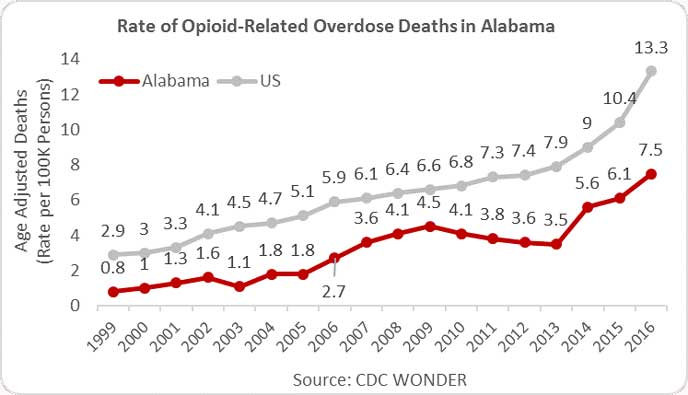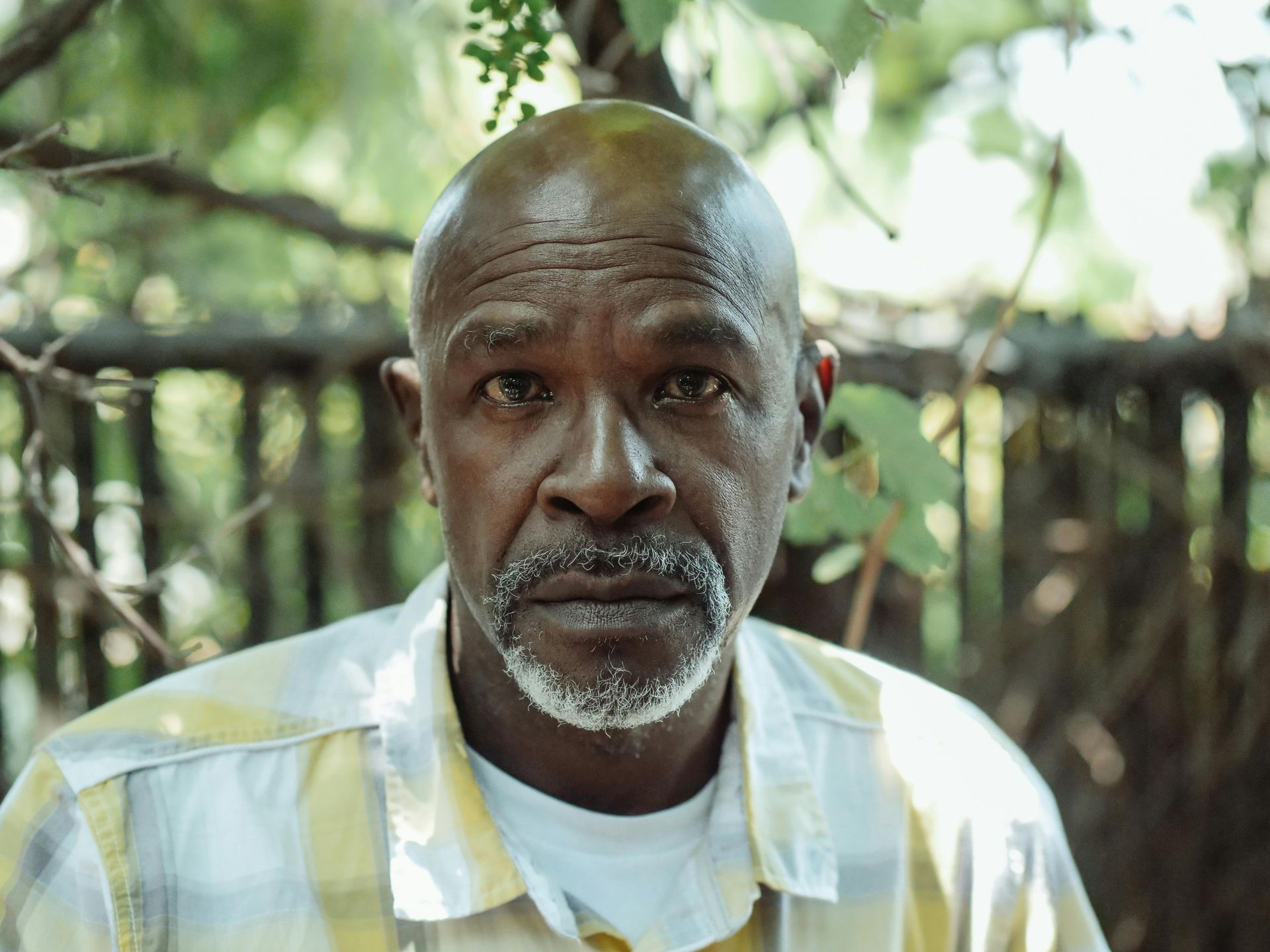Opioid Fraud And Abuse Detection Units – Coming To A City Near You Alabama
By: Daniel R. Crumby, Esq., MBA, MHA, CHC [1] Andrew C. Knowlton, Esq. [2]
The Department of Justice explicitly designated 12 federal prosecutors across the country as part of the Opioid Fraud and Abuse Detection Units. These Units are assigned to areas where the most opioid drug-related deaths have occurred: California, Nevada, Alabama, Central Florida, East Tennessee, West Virginia, North Carolina, Kentucky, Ohio, Pennsylvania, Michigan, and Maryland. Members of these Units also includes numerous federal, state, and local law enforcement and governing entities including the DEA, FBI, HHS, and other federal and state agencies (Medicaid Fraud Control Units, FDA, IRS, State Pharmacy Boards, etc.). These Units have a specific mandate to target physicians, pharmacists, and downstream/ancillary services (addiction treatment centers, etc.).[3]

The opioid epidemic devastated Alabama, and in 2013, “Alabama providers wrote 141.1 opioid prescriptions for every 100 persons (approximately 6.8 million prescriptions)—the highest prescribing rate in the country and almost twofold greater than the average U.S. rate of 79.3.”[4] In 2016, Alabama had the highest opioid prescribing rate in the county, with a rate of 121.0 per 100 persons.[5] Also, Alabama’s rate of opioid-related overdoses reached 7.5 deaths for every 100-thousand persons, a substantial increase from 2015.[6] Given the opioid epidemic’s desolation of Alabama’s communities, Alabama is the lead plaintiff in the federal multidistrict opioid litigation currently pending in Ohio. The multidistrict litigation is comprised of state and local governments, municipalities, Native American tribes, pharmaceutical companies, pharmaceutical distributors, drug stores, and individuals.
Even with the pending federal and local opioid-related civil lawsuits, the federal government will continue to utilize the Opioid Fraud and Abuse Detection Units to pursue local pharmacists, physicians, and those who offer downstream opioid-related services. In targeting these individuals and entities, the Units are applying a hybrid approach to tackling the opioid crisis by combining both traditional drug and health care fraud prosecutions. From a conventional drug prosecution standpoint, prosecutors will likely factor in the following:
- Medical providers are only permitted to dispense medications consistent with their licensure; however, they do not enjoy unfettered discretion regarding the number of drugs dispensed;
- Services must be for a legitimate medical purpose and in the usual course of professional practice;[7]
- The actual passing of the prescription is sufficient to constitute a distribution regarding the federal criminal statutes; and
- Physicians and pharmacists do not have the right to turn a blind eye and bury their heads in the sand regarding prescribing and dispensing medications.
Next, the federal government will continue to focus on the following areas apt for health care fraud prosecutions; however, they will shift their focus to prescribing and dispensing opioid drugs:
- No legitimate medical necessity for dispensing medications;
- Services not actually provided;
- Up-coded services and unbundling of services;
- Billing for improperly dispensing controlled substances;
- Billing for buffer drugs;
- Billing for necessary services (evaluation and management, CT scans, balance testing, injections);
- Unnecessary referrals (urine drug screens); and
- Billing for prescriptions that were never filled (pharmacies billing for controlled substances for the prescription to another filled in the medications are sold from the black market).
Physicians, pharmacists, and downstream/ancillary services are unlikely to aimlessly wander into the ire of the federal government’s opioid dragnet, as there are numerous “red flags” that could potentially trigger legal scrutiny. Moreover, medical providers should be cautious of these “red flags” and others, when evaluating whether their practices aid and abet the opioid crisis:
- High patient volume;
- Cursory exams and lack of meaningful diagnostic testing;
- Charging high cash prices;
- Prescribing a high percentage of controlled substances;
- Prescribing multiple controlled substances at the same time (opioids combined with Benzodiazepine and Gabapentin which can result in a “higher high”);
- High dosage/quantity compared to the ailment;
- The frequency of out-of-state patients;
- Group travel to see a particular physician or pharmacy;
- Doctor shopping;
- Failure to follow the diversion prevention measures (e.g., urine drug screens);
- Pre-populated patient charts;
- High volumes of controlled substances compared to peer pharmacies;
- A high percentage of controlled substance patients from a single doctor; and
- Failure to utilize Prescription Drug Monitoring Programs.
Some of these “red flags” provide government investigators with a starting point for gathering readily available information on a medical provider’s treatment trends and patterns. Next, the federal government, with its increased reliance on data analytics, sifts through the voluminous patient, billing, and pharmacy records to determine what potential opioid prescription and dispensing outliers exist.[8] Based on the data, the government employs prosecutor and civil attorneys, investigators, accountants and near-limitless federal resources to analyze the statistics and determine which medical providers and pharmacists prescribe and dispense opioids at a superior volume, and are ripe for federal prosecution.
While the government is increasingly relying on data analytics, traditional investigative techniques are still being employed to combat the opioid crisis, including grand jury subpoenas, civil investigative demands, state Medicaid participation rules, informants, co-defendants, whistleblowers, anonymous calls to law enforcement hotlines, and rebuffed potential clients and recalcitrant patients.
Based on the creation of these highly specialized Units, the federal government is steadily increasing the pressure on medical providers to re-analyze their prescription practices and take a more active role in tackling the opioid crisis. Without some short-term cessation in the number of opioid-related deaths, the federal government will divert additional personnel and resources to increase the number of these Units. Further expansion could also include encompassing the Medicare Fraud Strike Forces, tasked with prevention and combatting health care fraud, waste, and abuse in nine locations across the country, including Miami, Florida, Los Angeles, California, Detroit, Michigan, southern Texas, Brooklyn, New York, southern Louisiana, Tampa, Florida, Chicago, Illinois, and Dallas, Texas. These interagency teams are already well versed in data analytics and have proven success in utilizing investigative sources to identify and prosecute health care fraud – one of the tenets of the Units’ hybrid approach to address the opioid crisis.
[1] Daniel Crumby was a federal prosecutor in the Southern District of Georgia and the Western District of Texas and he represented the United States as a federal civil litigator. He focuses his practice on federal investigations, health care fraud and abuse, medical malpractice and long-term care. Daniel practices in Hall Booth Smith’s Atlanta office.
[2]
Andrew Knowlton is a partner in Hall Booth Smith’s Birmingham office and focuses his practice on the defense of healthcare corporations and providers.
[3] The Alabama United States’ Attorneys retain their inherent authority to prosecute physicians and pharmacists in their respective jurisdictions.
[4] Alabama on hot seat in national opioid litigation talksAL.com,
[5] CDC Annual Surveillance Report of Drug-Related Risks and Outcomes
[6] CDC Wonder
[7] 21 C.F.R. § 1306.04
[8] Available databases include the HHS-OIG Consolidated Data Analyst Center, Prescription Drug Monitoring Programs, Casper, Acumen, Medicare Part B, and state prescription drug databanks.













